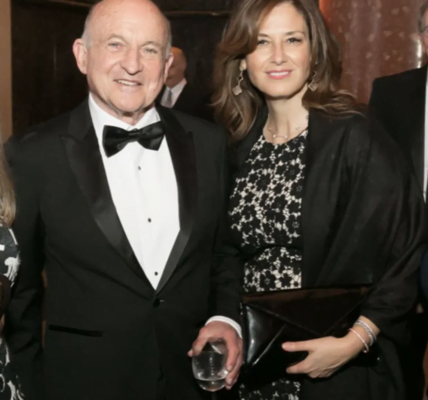
Disappearing media
This is the 199th edition of SHuSH, the official newsletter of the Sutherland House Inc.

Kwame Scott Fraser, a fine bookman and one of the more engaging personalities in our industry, has resigned as publisher and president of Dundurn Press. He’s been leading the show there since Kirk Howard sold the company to an ownership group headed by Jason Martin four years ago.
During the pandemic, Kwame spent good chunks of time in Jamaica (wish we’d thought of that). He saw some interesting opportunities there and with things on an even keel at Dundurn decided to make the move this year. He’ll still be involved with the company in an editorial capacity, commissioning books and so on, and he’ll be back in Toronto from time to time. I spoke to him this week and he sounds excited for what’s ahead. We’re happy for him.
I also spoke to Jason, who asked me to put out word that Dundurn is hiring. It’s a good opportunity for someone—Dundurn remains one of Canada’s flagship independents. I asked Jason who interested parties should contact. He said that’s the first test.
By the way, SHuSH doesn’t generally report on news at other Canadian independent publishers, but we’re happy to make announcements and advertise opportunities on their behalf. It doesn’t cost anything (for now, at least) and with 30,000 readers a month, it’s the biggest and best audience in the field. Just email us at shushnewsletter@gmail.com.

There are a lot of controversies in book publishing, but few things that rate as scandals. Maybe the closest we’ve come since SHuSH began publishing was an August 1, 2021 story in the Wall Street Journal detailing how eighty-four-year-old Dick Robinson dropped dead on a walk somewhere on Martha’s Vineyard and left behind a will bequeathing all his personal possessions and control of his family business, the massive educational/kids publisher Scholastic, not to his ex-wife or his siblings or his two sons, but to fifty-four-year-old company executive Iole Lucchese, described in Dick’s will as “my partner and closest friend.”
The Journal found that language ambiguous and called Lucchese the late Robinson’s “longtime romantic partner.”
According to subsequent reports in other newspapers, Dick was a “serial philanderer.” His first wife, Katherine Prentis Woodroofe, was a Scholastic editor. They married in 1968. Dick was still married to Woodroofe when he began carrying on with her successor, Helen Benham, a Scholastic employee who would also be the mother of his two sons. His relationship with Lucchese, described as a “lithe brunette,” seems to have begun in 1992, six years into that second marriage. Robinson divorced Benham in 2003.
Lucchese was meanwhile married to Quentin Kong, a Toronto marketing executive. They split in 2006, by which time she was running Scholastic’s Canadian operations and commuting between Toronto and New York. She was eventually promoted to executive vice-president and head of strategy at the $1.2-billion firm, spending all her time in New York. Some colleagues attribute her “meteoric rise” at the company to her intimacy with the boss.
Apparently Lucchese’s relationship with Dick was an open secret at Scholastic. They are said to have kept things professional at the office, although there are reports of occasional disagreements that sounded personal, earning them a kids-book nickname—“the Bickersons.”
The Journal’s reporting on Scholastic was one-sided, heavily dependent on interviews with Dick’s adult sons. They called Lucchese’s “sudden emergence” as owner of the the publishing house “unexpected and shocking.” They considered themselves their father’s closest advisors and thought they ought to have inherited the company. Their mother, Benham, also professed to be stunned by her ex-husband’s will. She positioned herself as his rightful heir, claiming that Dick was “coming back to his family.”
The Journal reported that the sons were considering their legal options and left readers thinking some great injustice had occurred, landing Scholastic in the lap of a world-class gold digger.
I’d never paid any attention to Scholastic before this story and was ready to believe the injustice theory at the time it was floated. It soon became apparent, however, that neither of Dick’s boys had ever held a real job at Scholastic. One was a self-styled documentary filmmaker whose latest work was a Grubhub ad for a Filipino restaurant in Brooklyn. The other was living off the land in Martha’s Vineyard: “I fish the fish and cull the deer,” he said. Benham did work at Scholastic decades ago, although not at a senior level and she hasn’t been seen around its offices in decades. That none of the three were on his board of directors tells us something of what Dick thought of their capacities.
Iole Lucchese, on the other hand, was a thirty-year employee, executive vice-president, chief strategy officer, and president of the fast-growing Scholastic Entertainment division. She’s been a recognized member of the senior executive group for at least a decade, and for the last two years she’d been Scholastic’s highest-paid employee apart from Dick.
If they’d called you when Dick dropped dead and asked you to flip through Scholastic’s SEC filings and identify someone who could steer what has always been an owner-operated company into the future, you would likely have landed on Lucchese. On the small executive team, her only rival was the CFO, who had no operating experience. There were some good people on the Scholastic board, but none with deep knowledge of the brand and the business.
Regardless of who was fucking whom, Lucchese was the heir apparent and a far better option to lead Scholastic than Dick’s ex-wife or either of his aspiring nepo babies.
That’s where things stood in summer 2021. If the boys were still considering their legal options, no papers were filed. Lucchese took ownership of 53.8 percent of Scholastic’s Class A shares and the title of board chair. She kept her operational roles at the company and hired as CEO the former Thomson Reuters executive Peter Warwick, a Scholastic board member of some years’ standing.
In March 2022, the boys were back, along with their mother, repeating to Vanity Fairtheir claim that they were robbed of their inheritance. Benham was insisting that Dick was with them on Martha’s Vineyard the weekend he died because he’d been about to return to the family. He supposedly had come to “many painful realizations” and “expressed his regrets” to her at a kitchen table the night before he died. She was heartbroken “that he died before correcting a devastating mistake he had made—something he most assuredly planned to do.”
What was the mistake? She didn’t say, but the magazine quoted an anonymous source “close” to Dick as saying he was going to rewrite his will.
Another anonymous source said there had been discussions about putting at least one of the sons on the board of directors, and that Dick certainly would have done so were he not worried about Lucchese’s reaction.
The article threw a lot of dirt Lucchese’s way. Someone described her as power hungry. Someone said she treated Dick like shit around the office. Someone said she changed him in certain ways and was apparently the reason he start wearing “these tight little boy suits.” She had him so whipped he sent “underlings out in the snow to pick up her favorite flowers or stock the office with food she liked.”
The tenor of the piece was that Dick’s leaving the company to Lucchese was “a big mistake.” She was in over her head and unlikely to “keep the place from being chopped up or sold off.”
The Scholastic story then went quiet and I rarely thought about the company until last month when a friend at Simon & Schuster laid out what we referred to in SHuSH 215 as the “dream scenario.”
The hope at S&S is that its new owner, private equity firm KKR, will deviate from its usual slash-and-burn methods of preparing a company in its control for re-sale, and in this case use its deep pockets to purchase another publisher, different from but complementary to Simon & Schuster. The two firms will then be combined. Efficiencies will be found. The combined entity will be worth more than the sum of its parts. S&S will look forward to a brighter future as a much bigger entity with no blood on the floor.
The hypothetical second entity in this scenario is Scholastic. S&S is weak in the kids and young adults categories. The companies are a notional match.
There’s a definite logic to the scenario. Book publishing abhors a mid-sized independent—there’s been an orgy of consolidation in the industry over the last several decades. The existence of a stand-alone company that does only one thing, i.e., sells books to people under the age of seventeen, seems an offence to nature.
The trick, of course, is that Scholastic would have to be for sale, and at the right price. KKR is a disciplined buyer, usually of distressed assets. That made me wonder how Scholastic is performing in the Lucchese era.
Not bad, as it turns out. Revenues are up substantially from pre-pandemic levels and way, way up from 2021, Dick’s last year. Margins are much improved, as is the share price. It’s early days, but Scholastic looks like a better company under Lucchese (she had a low bar to clear given that Dick was never a world beater from a financial perspective).
That suggests that if Scholastic is going to be bought, it won’t come cheap. How expensive would depend on how committed the controlling shareholder is to maintaining her independence.
Dick never wanted to be consolidated. Remaining independent was said to be his “most precious goal.” One supposes he was careful to choose as his heir someone who shared that priority. In that case, Lucchese likely sees her role as the keeper of Scholastic’s independence. Anything else would be a betrayal of Dick’s legacy and a subversion of the terms of her inheritance.
Lucchese and Warwick repeatedly have been asked if they’re interested in selling. They’ve been unequivicol that they’re not. “We’ve got the resources ourselves to go forward at the pace that we want to go,” said Warwick. And it’s true: the Scholastic balance sheet is solid.
It’s not clear what, if anything, might convince Lucchese and the Scholastic board to change their minds. That doesn’t mean KKR won’t acquire other publishing assets to merge with S&S, but I wouldn’t expect Scholastic to be among them.
Finally, whatever you think of Lucchese’s unconventional route to ownership of a prized publishing company, it’s hard not to be impressed by how she’s conducted herself since assuming control.
The critics have been noisy and the knives have been out. She’s kept her head down, giving only a brief interview to the New York Times in which she refused to comment on the nature of her relationship with Dick beyond saying that they were “great business partners and close friends.” She did speak openly about her enthusiasm for Scholastic and her plans for its future. That’s good discipline.
The biggest decision she’s had to make so far was the appointment of a CEO to replace Dick. She didn’t take the position herself, which had to be tempting given that she was next in line. Instead, she chose Warwick, a more experienced corporate hand who is male and older than her. That shows something, and it also leaves the company with a broader range of talents in the executive suite. Together, Lucchese and Warwick have shown a commitment to delivering better financial results than Dick managed in his later years.
As noted here previously, Dick Robinson made his share of questionable choices during his lifetime, but he appears to have made the right one when it came to ensuring the future of his company.
Last week we wrote about whether or not a publishing company should buy or rent its premises. Readers came down hard on the side of buy. From the legendary proprietor of Toronto’s Book City chain:
Always a delight to read SHuSH. Jack David is 100 percent right. Beg, steal, panhandle at the corner of Bayview & Moore and purchase a building in the most down-and-out area of the city (luckily Toronto has a few of those).
When Gini, my wife and business partner, insisted we purchase brick-and-mortar instead of opening Book City 2, I reluctantly listened. We really could not afford the downpayment. We ate dry bread, hotdogs and brown beans for a whole year.
But thanks a million I listened to her business suggestions. It’s because of the real estate we are enjoying our golden years and Ian, as a fourth-generation Donker, is able to continue selling books
All the best
Frans Donker
click here to visit the Sutherland House website and order one of our latest:

This is the 199th edition of SHuSH, the official newsletter of the Sutherland House Inc.

There was an interesting piece in the New York Times a week or so ago about James Daunt (above), the incoming chief executive of Barnes & Noble, the most important bookstore chain in the English-speaking world. It didn’t quite get to the nub of the matter. Barnes & Noble has

The world of non-fiction from Sutherland House ( and Beyond )